On May 26, the International Forum on Fostering Industry-Education Integration of Vocational Colleges and Promoting International Collaboration of the Belt and Roadorganized by the Shaanxi Provincial People’s Government and co-organized by the Shaanxi Provincial Department of Education, Xianyang Vocational and Technical College (XVTC) and Know-How Education LTD.was held in XVTC, which is one of important events of the 3rd Silk Road Education Cooperation Forum.
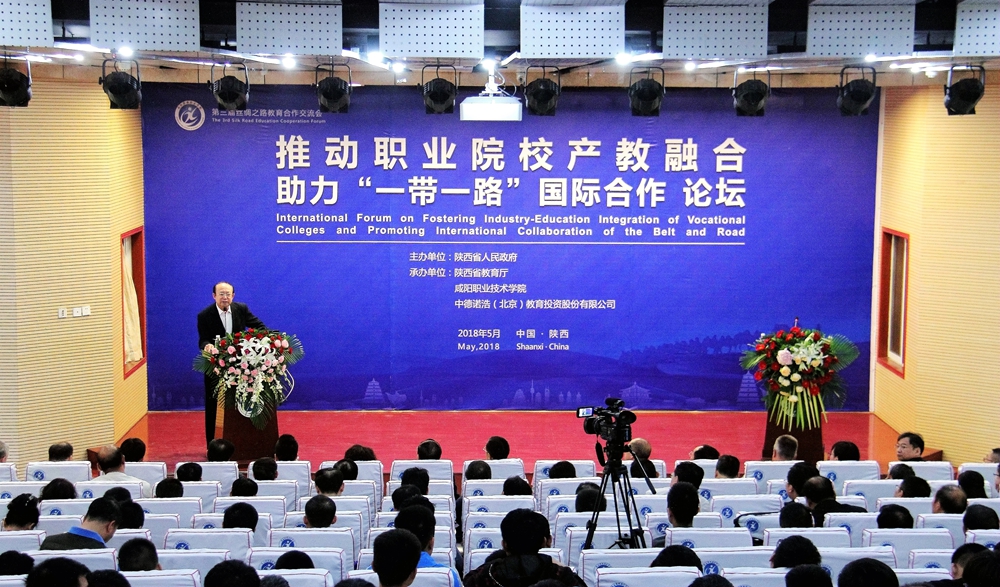
Liu Zhanshan, Deputy Chairman and Secretary-General of the Chinese Society of Technical and Vocational Education, Zhao Changbao, Deputy Director-General of the Shaanxi Provincial Department of Education, Sun Jianning, Director of the Office of International Cooperation and Exchange, Shaanxi Provincial Department of Education, Zhao Zhiqun, Director of the Research Institute of Vocational Education and Adult Education of Beijing Normal University, Andreas Metzdorff, special representative of the Chairman in F+U-Sachsen Education Group (Germany), Xu Jie, Chairman of Know-how Education LTD., Liu Congbo, Party Secretary of XVTC, Zhang Cun, President of XVTC and representatives from 50 vocational colleges and schools both all over the country attended the forum. The first half was hosted by Xi Shangjun, Deputy President of XVTC.
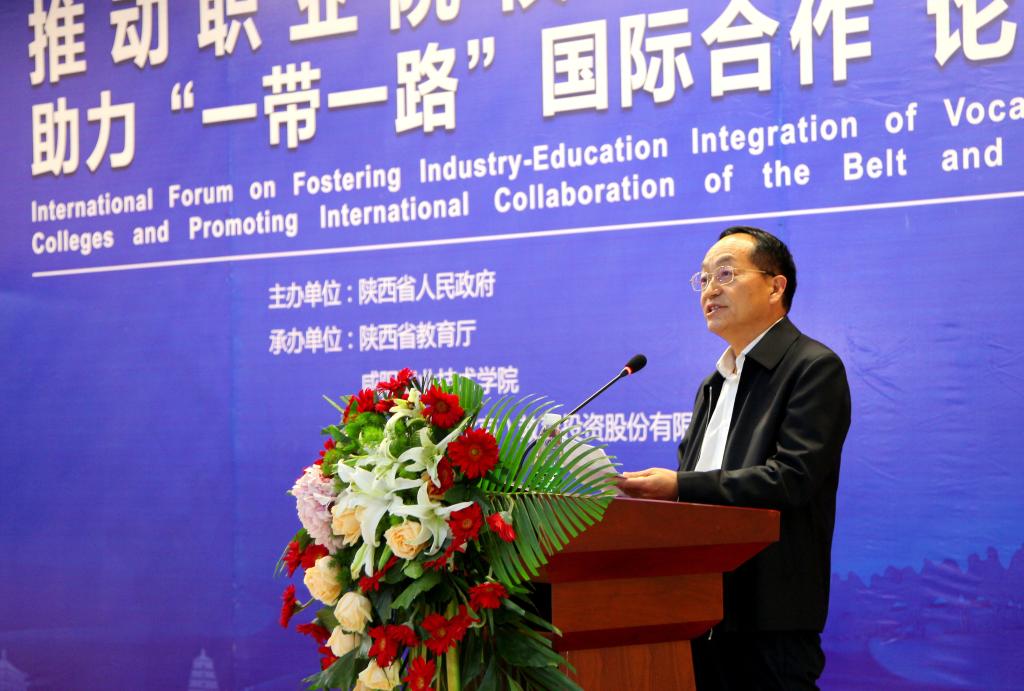
Liu Congbo mentioned in his welcome speech that XVTC had always attached great importance to international exchange and cooperation, especially to the national strategy of the “Belt and Road”, and established cooperative relationships with colleges and universities in more than 20 countries. XVTC had sent 110 teachers abroad for professional research and training and 22 students to the United States, South Korea and other countries to study further. 24 graduates went abroad to work. Since November 2013, XVTC had been running Sino-German cooperative-education programs with F+U-Sachsen (Germany), Know-How (Beijing), introducing indigenized vocational curricula from Germany for the purpose of cultivating high-skilled talents in the automobile industry, which had been remarkably successful after years of practice and exploration.
Mr. Liu emphasized that XVTC had been expanding its collaboration with educational institutes in countries along the Belt and Road in accordance with the innovation and development plan of higher vocational education since 2017. During the 3rdSilk Road Education Cooperation Forum, we had signed MoUwith Tampere University of Applied Sciences (TAMK), Finland and Khabarovsk College of Industry Technologies and Services (KCITS), Russia. Also, TAMK established its Shaanxi Training Center of Vocational Teachers in XVTC. International Forum of Sino-Russia Vocational Education was successfully held. All these events laid the foundation for further international cooperation of XVTC.
Mr. Liu also stated that XVTC would take this forum as an opportunity to promote collaboration with colleges and universities in countries along the Belt and Road in order to cultivate more high-skilled talents with global standard.
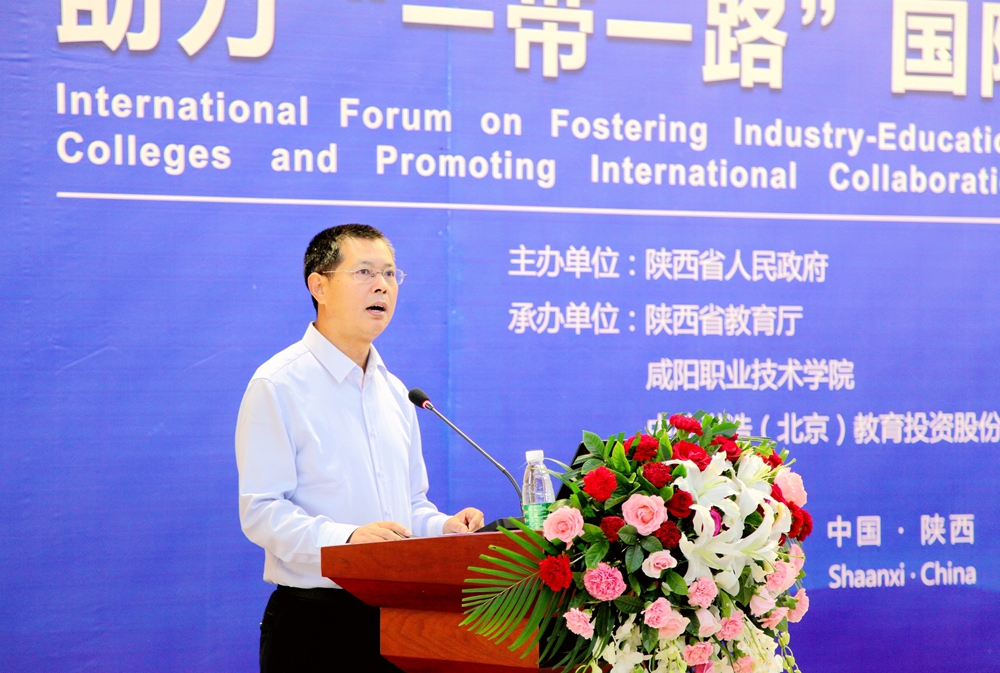
Zhao Changbao said that the forum is an important part of the 3rdSilk Road Education Cooperation Forum, focusing on the industry-education integration of vocational colleges. XVTC is the forerunner in promoting the integration of industry and education as well as one of the first vocational colleges qualified in running Sino-Foreign cooperative-education programs in Shaanxi Province.
Zhao also gave the following suggestions on international exchange and cooperation of vocational colleges with the countries along the Belt and Road.
First of all, vocational schools are expected to expand the area of cooperation.Vocational colleges should take the initiative to contact with the countries along the Belt and Road and strive for more countries and regions to join the B&R, so as to achieve new breakthroughs in the number of exchanges and cooperation
Second, vocational colleges are supposed to promote the depth of cooperation.International exchange and cooperation of vocational colleges should not be limited to visit, investigation or academic conference, but conduct substantive exchange and collaboration in the field of specialty co-construction, curriculum development, teacher exchange, practical teaching and international student training in order to learn from each other and improve the level of talent training together.
Third, vocational colleges should intensify the power of cooperation.Vocational colleges should attach great importance to Selecting cooperation projects, strengthening frontier exchanges and cooperation, and increasing the communication of school-enterprise cooperation and industry-education integration should be emphasized in order to learn from advanced model and experience of running schools, and promote the healthy and rapid development of vocational education.
Last but not least, vocational colleges ought to increase the frequency of cooperation.It is necessary to establish a long-term exchange and cooperation mechanism. We should make regular visits, carry out various activities regularly, and adhere to the normalized exchanges and pragmatic cooperation to make vocational colleges’ international cooperation colorful and fruitful.
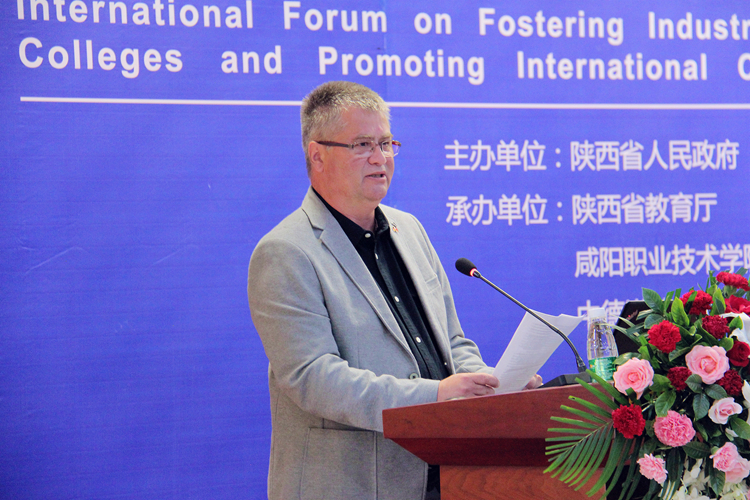
Andreas Metzdorff mainly made an introduction to the cooperative project of F+U-Sachsen (Germany), Know-How (Beijing) and XVTC. He mentioned that we had achieved very successful results in terms of training outstanding talents, boosting teachers’ technical level, improving the experimental facilities, enhancing the teaching effect and innovating evaluation and assessment system, although it was a long process to indigenize the German courses.
Metzdorf stressed that the achievements made by the students at the Sino-German Automotive Institute of XVTC were the best witness for the quality of international cooperation. He believed that more achievements would be attained in the near future as long as we do not forget and stick to the initial intention.

Liu Zhanshan stated in his speech that there had been a clear strategic deployment of vocational education since the 19th National Congress of CPC. The main task of vocational education in the new era was to optimize its education and training system, deepen school-enterprise cooperation and industry-education integration, and cultivate a strong knowledge-based, skilled and innovative labor force, which would provide talents for the country to achieve the two centenary goals and the great rejuvenation of the Chinese nation.
Liu emphasized that the task and mission of vocational education were very arduous, but the talent-training was vital and important. Vocational education must promote school-enterprise cooperation and industry-education integration to form a pattern where education supply side and industry demand supply side are fully connected, integrated and develop together.
The successful collaboration between XVTC and Know-How offered a curriculum system that meets the international standards and China's realities by introducing,indigenizing and improving the world's most advanced vocational education concepts, curriculum, standards, teachers, evaluation system so as to develop an upgraded vocational education standard with Chinese characteristics and developing
Liu expressed his hope that participants would take the forum as an opportunity to seriously analyze the current international and domestic situation of vocational education, and study the situation of new technologies and industries in order to push the vocational education to a higher level and make our vocational education to be the most advanced in the world
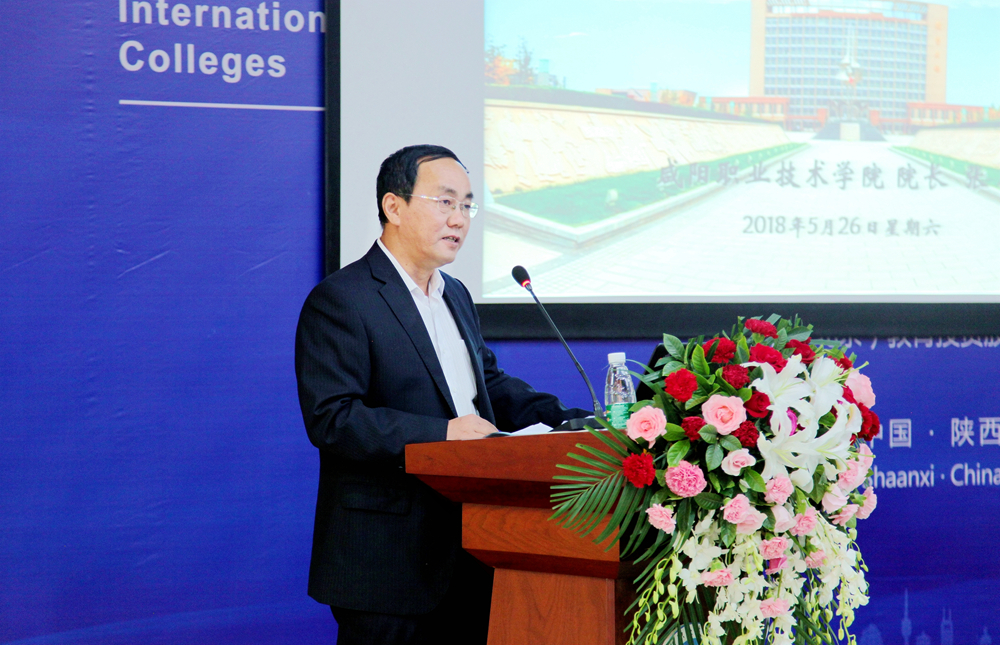
Zhang Cun delivered a thematic report on Exploration and Practice of Cultivating German Standard High-skilled Automobile Talents by Introducing the German Teaching Model,where he talked about how to deepen industry-education integration and promote international collaboration of XVTC based on multi-dimensional cooperation from the aspects of the project’s general situation, practice, development and prospects under the background of the national “the Belt and Road Initiative”. He pointed out vocational colleges are supposed to make new and great achievements in the new era of vocational education represented by the Sino-Germany Know-how high-skilled automotive talent training project.
The second half of the forum was hosted by Zhao Yunlong, Deputy President of XVTC
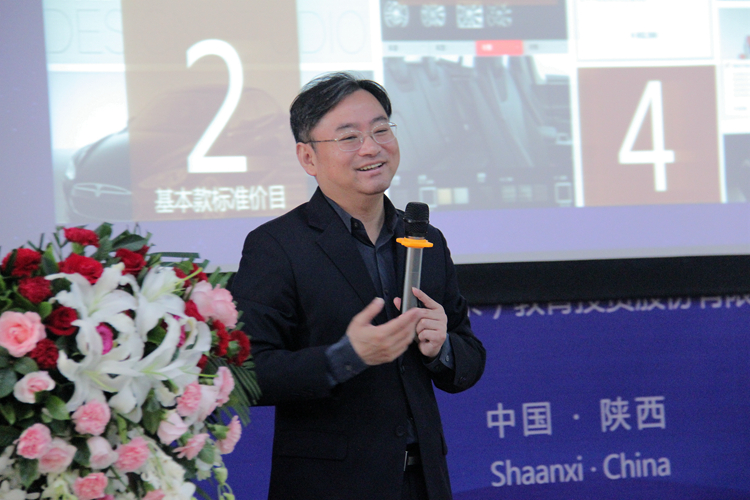
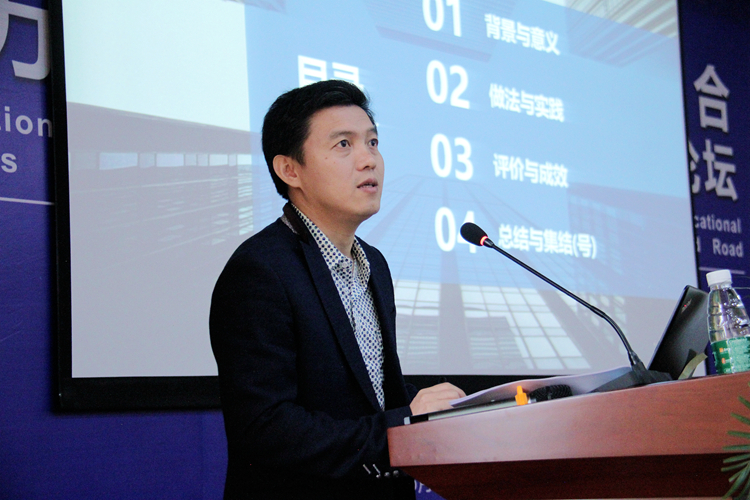
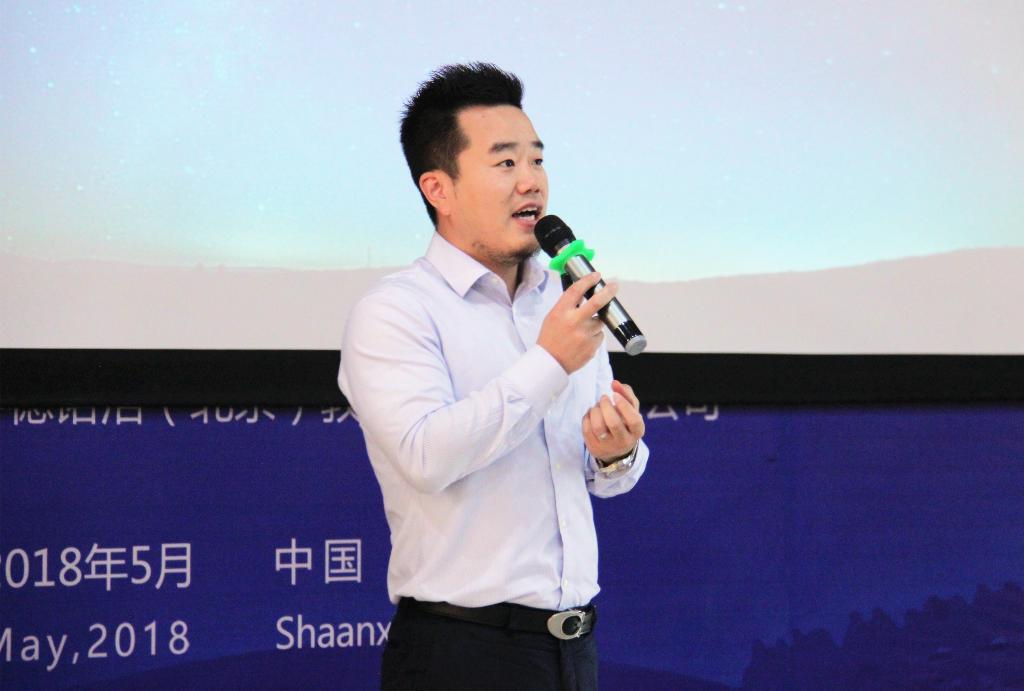
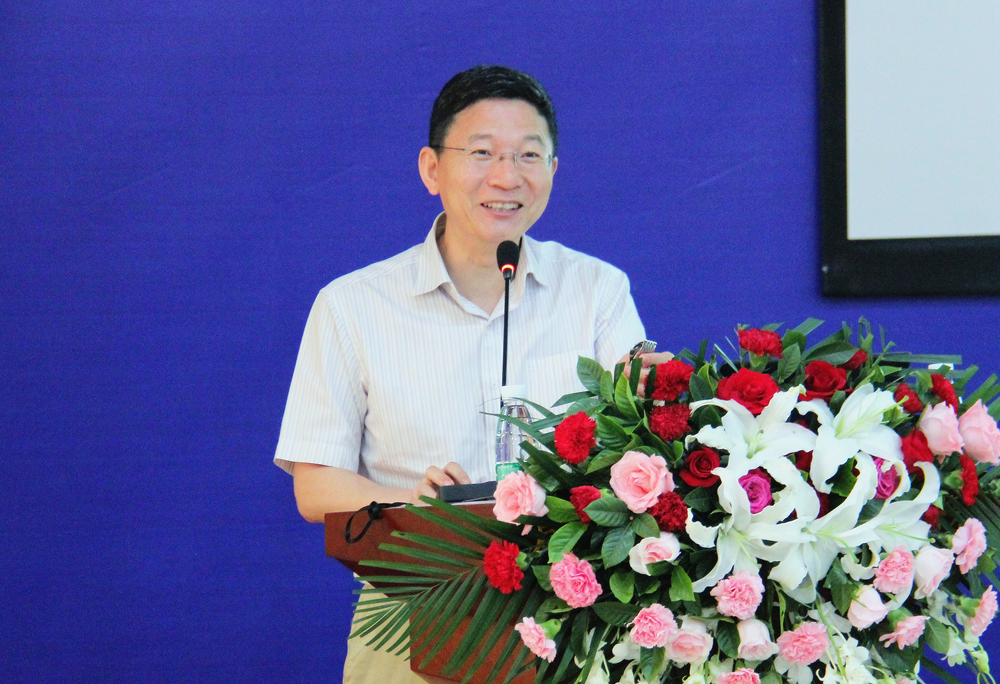
Sun Yong, a consultant of China Automotive Talent Research Association and distinguished expert of China Automobile Dealers Association, made a report onHow to Define Vocational Education in the New Era from the Perspective of National Automobile Industry Reformation. Liu Jianguo, Deputy President of Harbin Vocational and Technical College, gave a speech aboutServing Transnational School-Enterprise Cooperation along the Belt and Road and Promoting Opening-Up of Vocational Educatio. Chu Meng, Executive Deputy President and COO of Know-How, delivered a speech onInnovation Promotes the International School-Enterprise Cooperation in Vocational Colleges in the New Era.Yang Hong, Vice Principal of Vocational Education Center of Qindu District, Xianyang, gave a speech onConstructing First-Class Automobile Major by Introducing International Resources and Promoting School-Enterprise Cooperatio. Zhao Zhiqun, Director of Research Institute of Vocational Education and Adult Education of Beijing Normal University, made a wonderful report onEnlightenment of German “Dual System” Vocational Education to China.
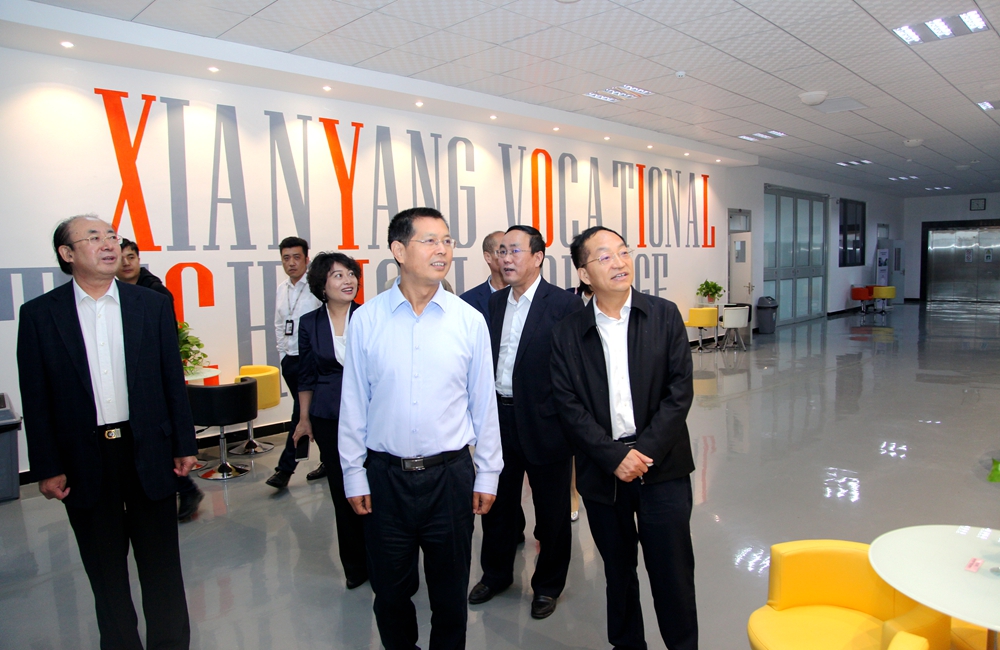
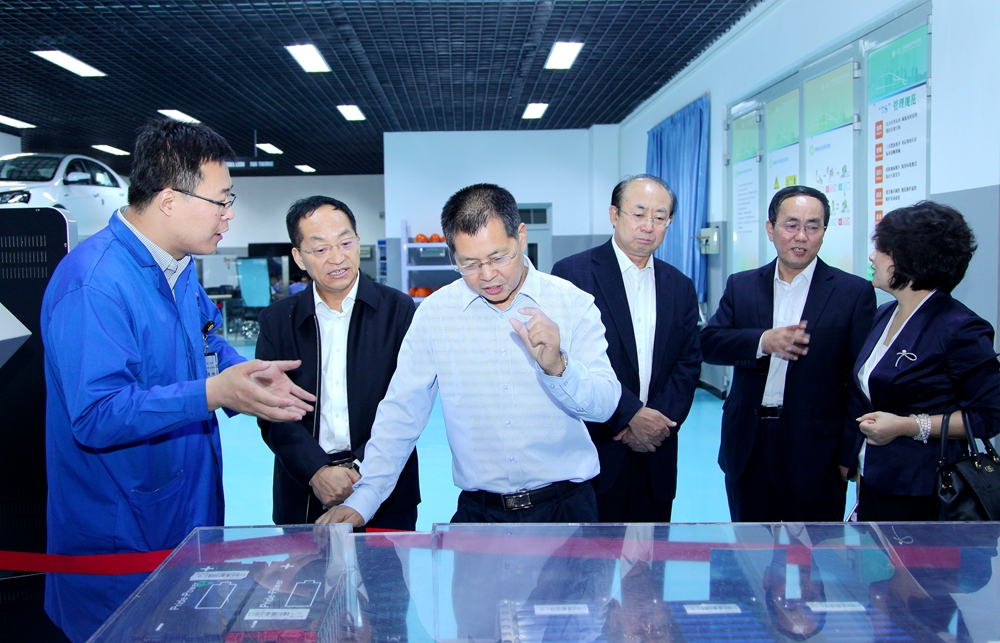
During the forum, Accompanied by Liu Congbo and Zhang Cun, Liu Zhanshan, Zhao Changbao, Sun Jianning and Xu Jie also visited the new stadium as well as the Automobile Marketing Comprehensive Service Hall, New Energy Vehicle Comprehensive Practical Training Room in Automotive School. They also put forward some valuable suggestions on international collaboration and multi-cooperation of vocational education.